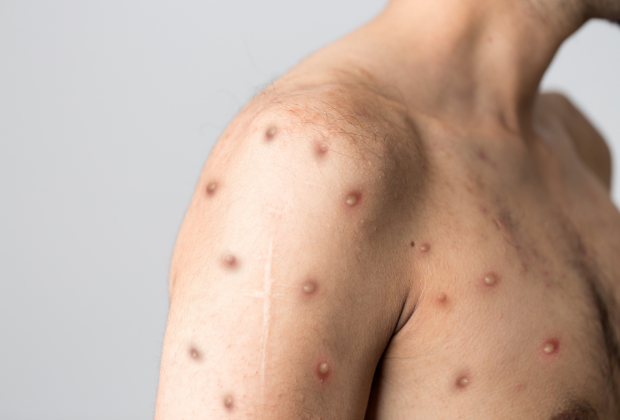Monkey Pox: Things you need to Know

Mpox, previously known as monkeypox, is a viral disease caused by the monkeypox virus, which belongs to the Orthopoxvirus genus. There are two distinct clades of the virus: clade I (with subclades Ia and Ib) and clade II (with subclades IIa and IIb). In 2022-2023, a global outbreak of mpox occurred due to the clade IIb strain, and the disease continues to pose a threat, with recent upsurges in cases in the Democratic Republic of the Congo and other countries caused by clades Ia and Ib.
The symptoms of mpox include a skin rash or mucosal lesions, accompanied by fever, headache, muscle aches, back pain, low energy, and swollen lymph nodes. The disease can be transmitted through close contact with an infected person, contaminated materials, or infected animals. Pregnant women can pass the virus to their fetus or newborn during or after birth.
Mpox is treated with supportive care for symptoms, nutrition, hydration, skin care, and prevention of secondary infections. Vaccination is available and recommended for high-risk individuals, including health workers, household contacts, and people with multiple sexual partners.
The natural reservoir of the virus is unknown, but small mammals like squirrels and monkeys are susceptible. Transmission occurs mainly through close contact, including skin-to-skin, mouth-to-mouth, or mouth-to-skin contact. People with multiple sexual partners are at higher risk, and the virus can also be contracted from contaminated objects or through needle injuries.
The signs and symptoms of mpox typically begin within a week and last 2-4 weeks. Common symptoms include rash, fever, sore throat, headache, muscle aches, back pain, low energy, and swollen lymph nodes. The rash often starts on the face and spreads to the palms and soles, and can also occur on other parts of the body.
Diagnosis is challenging due to similarities with other infections and conditions. Laboratory testing, such as PCR, is essential for accurate diagnosis. HIV testing should be offered to adults with mpox, and children as appropriate.
Treatment focuses on managing symptoms, preventing complications, and providing supportive care. Antivirals have received emergency use authorization in some countries and are being evaluated in clinical trials. Individuals with HIV and mpox should continue taking their antiretroviral therapy.
Prevention measures include self-care, isolation, and precautions such as wearing masks, covering lesions, and using condoms. Health workers should follow infection prevention and control measures, including wearing personal protective equipment and adhering to protocols for safely swabbing lesions.
Outbreaks have occurred in various countries, including the Democratic Republic of the Congo, Nigeria, and the United States. The global outbreak in 2022-2023 primarily affected gay, bisexual, and other men who have sex with men, and has spread person-to-person through sexual networks.
Stigma and discrimination can undermine public health efforts, and WHO works to prevent and respond to outbreaks, coordinating research, strengthening health systems, and facilitating equitable access to tools and resources. The WHO Director-General has declared mpox a public health emergency of international concern twice, in May 2022 and August 2024.
